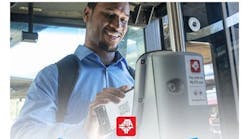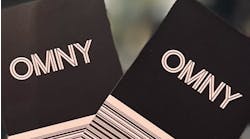Mar. 5—Tucson's free bus and streetcar rides is costing the city millions, but City Council members on Tuesday seemed wary of reinstating fares.
Access to the city's public transportation network through Sun Tran, Sun Link and Sun Van has been free since March 2020, during the pandemic. The city initially used federal COVID relief funds to cover the costs, but that money is long gone and keeping the fares free for riders cost Tucson more than $8 million last year.
Since 2020, the measure has served as a test run for a permanently fare-free system, a concept many council members and public advocacy groups have expressed support for. Critics, however, say it increases instances of crime and violence.
The funding deficit ranges from $9.9 million to $14.9 if fares are not reinstated, city manager Michael Ortega said in a March 5 memo.
Prior to the meeting, Ortega recommended that fares on Tucson's streetcar, the Sun Link and its 12-route fast commuter, the Sun Express, be reinstated.
Councilwoman Nikki Lee on Tuesday pushed unsuccessfully for an equity analysis before making the move to again charge riders.
"I'm afraid if we say, 'OK, let's do the six-month study,' it's really an indication to the community that we're leaning that way," Ward 3 councilman and Vice Mayor Kevin Dahl said. If an analysis began, he said, the city council would get "deluged again and again" by people who Dahl says "justifiably" think a free transit service is a "great deal."
Tucson Mayor Regina Romero said the "incredible growth of our system with our fare-free transit system is absolutely worth the investment."
"One of the pieces of the Prosperity Initiative talks about prioritizing transportation options to connect disadvantaged communities to jobs, schools and resources," Romero said. "We want a community that progresses financially and that we offer opportunities as a local government to be able to offer students, seniors, veterans, low-income communities the opportunity to connect to resources."
Further discussion, and potential direction on beginning the process of fare reinstatement or finding alternative funding sources, will be brought back to mayor and council at its March 19 meeting.
In May of last year, Tucson's mayor and council unanimously extended the moratorium on fares as it waited for buy-in from other regional entities. At that time, Romero sent letters to the heads of the University of Arizona, Pima Community College and the Tucson Unified School District to ask them to contribute funding after a city-issued study revealed high ridership among their students and staff.
Ridership is up
All of Tucson's public transit was up on its ridership from last year, and in previous years, city data shows.
Users took about 16.8 million rides across all Sun Tran modes in fiscal year 2023, which spanned from July 1, 2022, to June 30, 2023.
Fiscal year 2023 saw the most Sun Tran riders since fiscal year 2018, the most Sun Van riders since fiscal year 2019, and the most Sun Link riders since the service opened in July 2014, city data shows.
Over two million rides were taken by students and staff of TUSD, Pima Community College and the UA, city data shows.
Nearly 150,000 rides were by Pima Community College students or staff, city data shows; however, just an estimated 4,623 of those total rides were taken by "faculty/staff."
Over 417,000 rides were by TUSD students or staff, although the overwhelming majority, about 406,000, of those rides were by students, city data shows.
But for the UA, over 1.42 million rides were by university students alone: on the Sun Link. UA students accounted for over 80% of all Sun Link rides in fiscal year 2023, city data shows.
Across all transportation modes, the city of Tucson estimates that about 1.8 million rides were taken by UA students, or, about 10% of all rides for that entire fiscal year.
Returning to fares
A 10% increase in fares will yield a 5% decrease in ridership, Ortega told the council.
Based on fiscal year 2023 ridership, as well as using the pre-pandemic rates of $2.35 for a Sun Express ticket and $1.60 for a Sun Link ticket, city staff estimated that revenues could be as little as $1.4 million, if ridership was cut in half across the two modes, to about $2.8 million if ridership numbers carry over from the past fiscal year.
"I don't personally think that bringing in $1.4 (to) $2.1 million is worth the exhaustive work we need to do to reinstate these fares," Romero said Tuesday. "It is very unfortunate that our academic partners have chosen not to be involved in this conversation, because it really would benefit, not just their educational institutions, but our entire community."
If all transit services reimplement fares, the city's projected revenue comes in at about $9.92 million, if ridership was cut in half, to about $19.85 million if ridership numbers remain similar to the past fiscal year, according to city figures.
However, fares only cover about nine percent of operating costs for Tucson's transit system, the Star's Tim Steller previously reported.
The total cost to operate Tucson's public transit system was about $107 million for fiscal year 2022, the Star previously reported. About $47 million in American Rescue Plan funds and $20 million of the city's general fund covered the bulk of transportation costs that fiscal year, while the remainder came from federal grants, the Regional Transportation Authority and advertising revenue.
Ortega is expected to bring back alternative funding options to the council for their March 19 meeting.
___
(c)2024 The Arizona Daily Star (Tucson, Ariz.)
Visit The Arizona Daily Star (Tucson, Ariz.) at www.tucson.com
Distributed by Tribune Content Agency, LLC.


